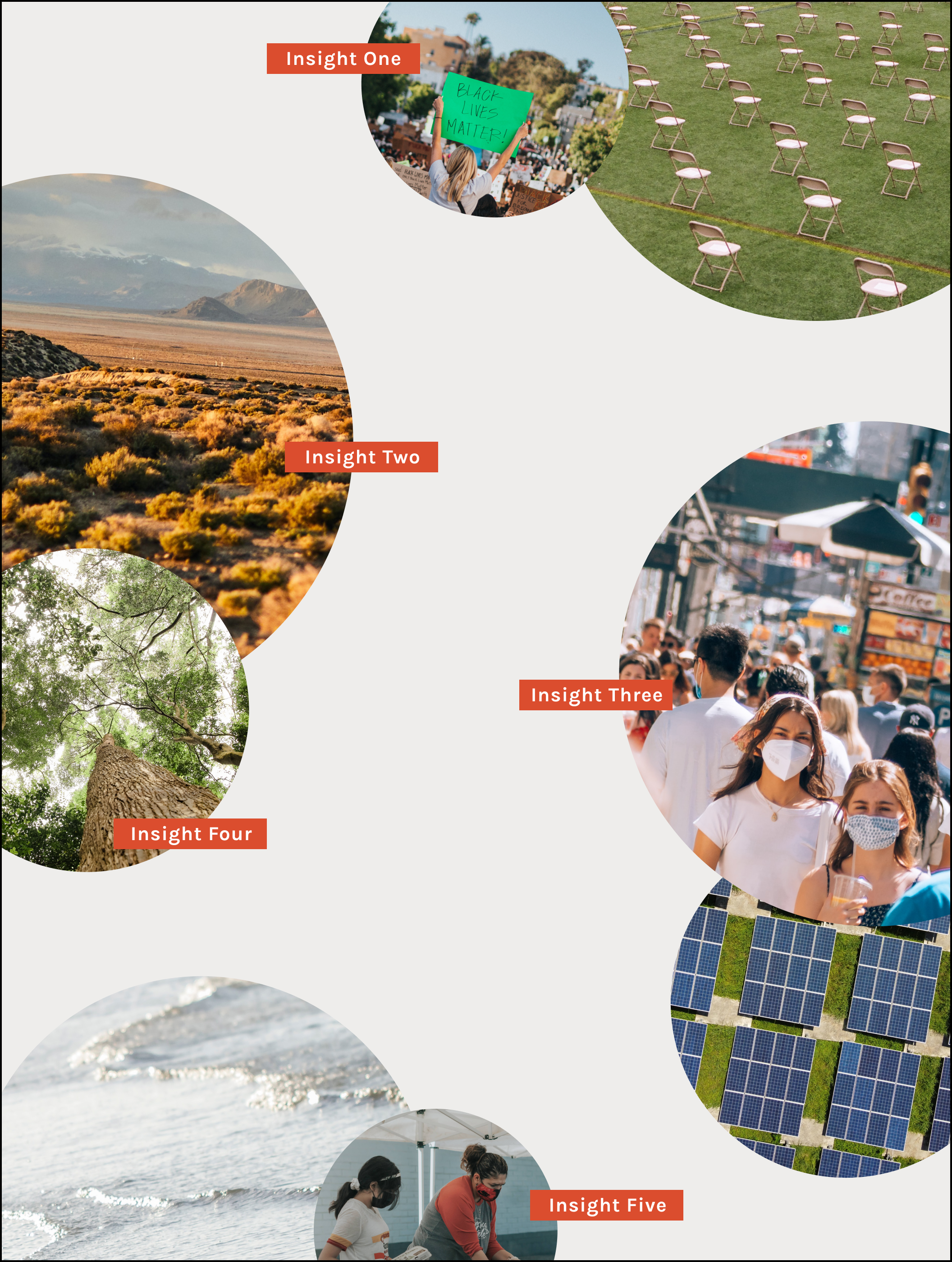Stephanie Parker: There’s a parallel between Equitable and The Atlantic—we’re both brands with 160-plus years. At the beginning of the year, you embarked on launching the Equitable brand and starting this new chapter. When you’re at a brand, like Equitable, that has this great legacy and history and mission, how do you stay true to that while also presenting a fresh, new brand voice and face to the world?
Connie Weaver: There was a ton of science that went into the brand. We looked at a lot of different names, but Equitable tested so well for so many reasons. We tried to do it very objectively, looking at the research and what customers were telling us. It’s a more holistic definition of who we were, and what better name than the original name—but structured to represent a modern financial services company.
Even looking at the symbol of Athena [Equitable’s logo]—that’s the goddess of wisdom and strength and protection. We talk about it as strength, courage, and wisdom. The ability to be strong financially, the ability to have the courage to lead and help people make the right decision, and the same with wisdom. You have to be there for that person—even maybe 50 years from now, if you think about somebody who buys a life insurance policy or buys an annuity. Every time they buy a product, you’re making a promise for the future, and that promise has to be a durable promise.
Parker: I love that piece When Tomorrow Becomes Today because it’s about so much more than financial planning or retirement. It touches on finding purpose and reinvention and long-lost loves. There are some surprising elements in there.
Weaver: It was human. It met people where they were, and that was the goal—always to be practical.
What I love about working with [The Atlantic] over other publications—and I’ve worked with many—is you’re a real partner. You’re a storyteller. Sometimes you pick topics that can be polarizing and controversial, but they’re very much providing insights to the reality of the way people are dealing with different situations and controversies. You’ll call a spade a spade, which I like. That’s good editorial.
This isn’t about supporting a point of view. This is about working with [a publisher] who gets people and knows how to meet people where they are and can understand both their agenda and our agenda and how they’re mutually beneficial. It wasn’t just about reaching your reader base. This was about producing great content, engaging content.
Parker: One of the things that’s really interesting about the piece is that it really leans into the insight that retirement is not what it used to be, and today’s customers are not exactly what they used to be. We’ve even done some research on our own that shows that people don’t want to be put in boxes anymore—they see themselves as fluid, and they want to be thought of based on their values and what they think and feel and what they care about. What advice would you share with other leaders as they’re thinking about a changing world and a changing customer?
Weaver: First of all, you start with the notion that you’ve got to meet people where they are. Meeting people where they are emotionally, with purpose. You have to understand the whole person, and not everybody is the same.
In terms of retirement, I’m the quintessential example of somebody who didn’t really want to retire. It’s because I love working. I love creating new things. We’re all living longer, and as long as we have the gift of health and choice, you can choose a path. People are wanting to stay relevant and engaged. The whole notion of “Just go to the beach” … Hey, I went to the beach. The beach gets old. It doesn’t work for everybody.
A lot of people get to retire, and then all of a sudden, you wake up and you go, “Oh my God. I’m retired, what do I do?” Which was one of our stories, as you know. Some people go back to work, and some people find and define whole new careers, but people want purpose, and so a lot of our storytelling was about that.
Everybody’s different, and so it’s important to understand what their purpose is and how people want to stay active and involved and what matters to them. Who are the people they care about the most? I don’t even think about it as retirement as much as I think about it as yet another chapter … Think about what a human goes through, through all these phases.
Parker: I would love to ask you, as we look ahead, what do you think will be the biggest lasting change or enduring disruption for marketing coming out of the [coronavirus] pandemic?
Weaver: I think the lasting impact is that people have learned to be more comfortable working remotely, bonding in different ways. I think it brings into perspective the importance of having great customer experience, because more and more people are having to do more things online. It puts customer experience back in the dialogue in a very material way, strategically, behind brands.
I look at what you guys [at The Atlantic] have done this year and how you’ve used your platform. If we meet people where they are with relevant information, bring [them] in, as opposed to just tell [them] what we think, that’s a relationship: That’s how you have a relationship with a brand. You can do it digitally, you can do it in person, you can do it in print. There’s a million ways to do it, from my view. You’re the same way [at The Atlantic].
The other thing I really like about our partnership is the fact that you really did work with us to understand that it’s one thing to get it out from you on our platform. It’s another thing to really have a shared platform and to truly care about the stories we’re telling, and the fact that we work together consistently, all year long, to build on this and to continue to adapt and listen … Your caring [on] the editorial side—not just trying to sell us a cookie-cutter sponsorship and move on with it, the way many of your competitors do—that was huge.
Parker: Well, we are so grateful for the partnership. The last question I have is, in years down the road when you look back on your time at Equitable, what would be the ultimate markers of success of your time there?
Weaver: That’s an easy one. Knowing that you have an impact in shaping the direction of a company. Truly, holistically, bringing a brand to life so that it delivered on its mission. Building a strong team that was looking forward, and finding a successor, so that when I actually do decide to retire … You know what? It’s self-obsoleting myself.
I would like to self-obsolete myself and look back at how far we’ve come. I love to take talent and let it breathe, because most people don’t begin to imagine what they’re capable of. I don’t like to run things perpetually, so the best way to do that, and I’ve done it my entire career, is to self-obsolete. Get to a point where you can go; you can do the next thing.




